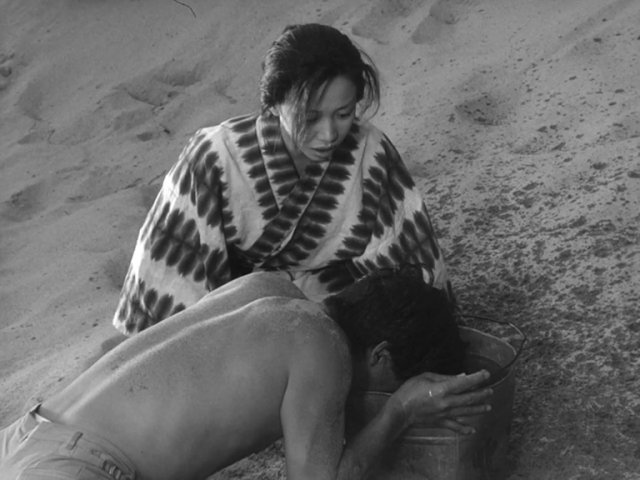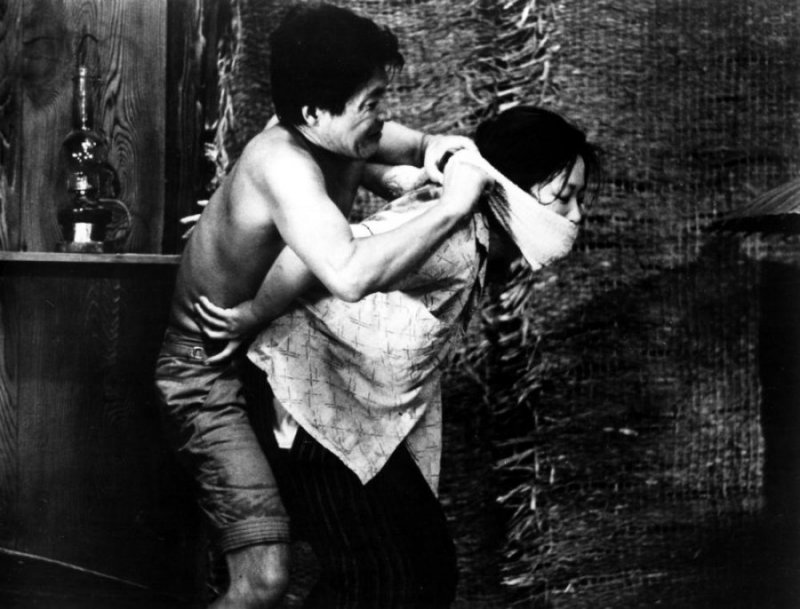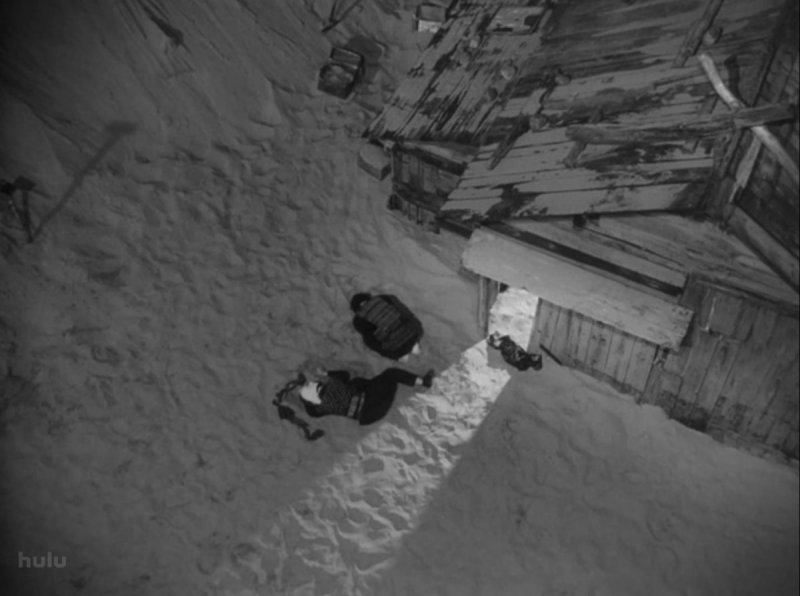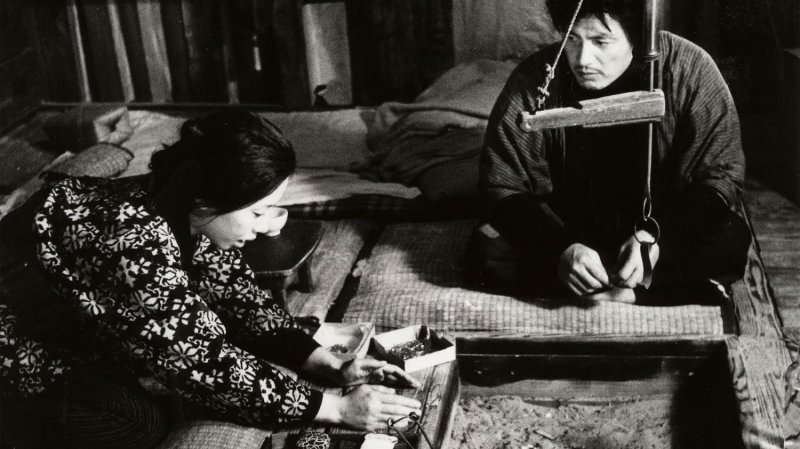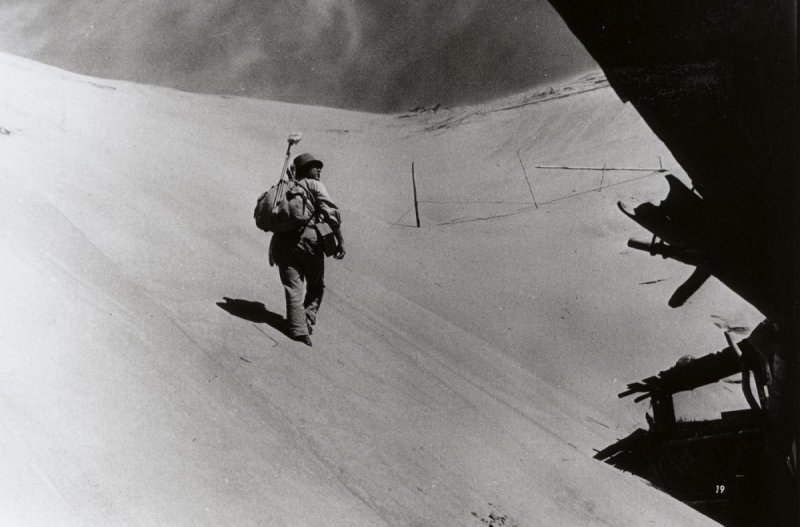
Niki Junpei is an entomologist. He takes a trip to the seaside, where among the dunes he plans to search for new species of insects. While searching for them he fails to notice the what time it is and is late for the last bus home. On the dunes he meets a man, who tells him of nearby house, where he could spend the night. They walk towards a small hut covered in sand, where they meet the widow that owns it. Niki has to climb down the ladder into the house. In the morning he finds out that he can’t get out - he was lured into a trap. From now on he will have to share his life with the widow, but locked down in the hole in the ground like prisoner. His main task is to fight the sand that is again and again burying the hut and other buildings in the village. With time Niki begins to see the heroism of the locals, who do not give up and keep digging their house out of the sand. He also grows to be fascinated by the widow herself.
The film takes place in an enclosed space, which perfectly captures the feeling of imprisonment and highlights the behavior of characters confined in a small hut. The film, by showing an individual, who has to face adversities by himself, is a masterpiece of Japanese existential cinema. With great claustrophobic atmosphere, very good music and wonderful camerawork all of the elements of the story are perfectly underlined. The ubiquitous sand directly affects the fate of people who measure to its force and with great performances from the actors we realize how deceitful enemy it is.
 add comment
add comment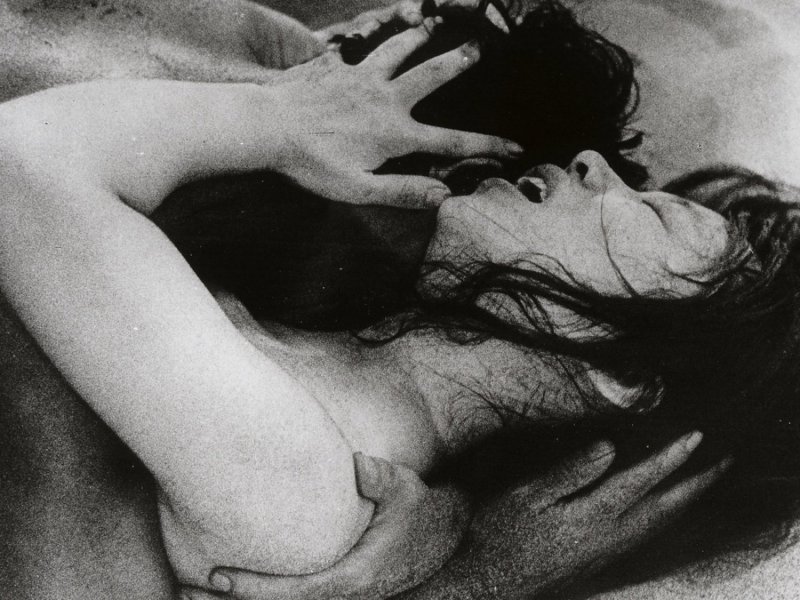
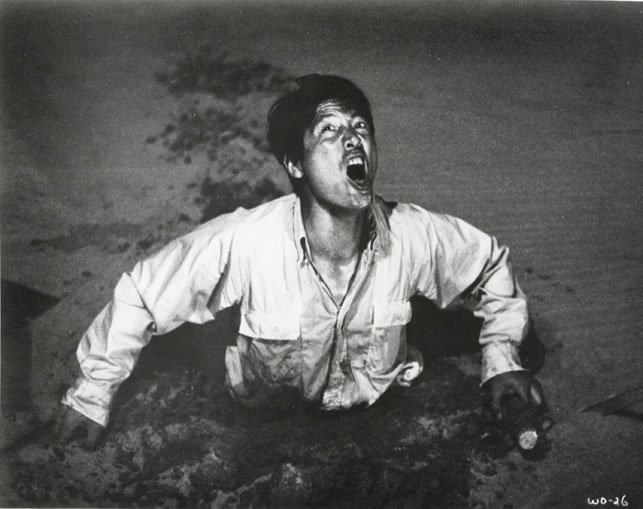
 |
 |
director | |
 |
screenplay | |
 |
screenplay |
 |
as woman | |
 |
as Niki Junpei | |
 |
as Niki’s wife | |
 |
||
 |
||
 |
||
 |
